SURBITON
It is a curious and unsettling to realise that our recent pre-lockdown and current reading has been either horribly prescient or oddly reflective of current circumstances.
Jean’s read was about prison incarceration, Tony’s was about the Chernobyl disaster and we are listening to a fantastic book ‘A Gentleman in Moscow’ about an aristocrat under house arrest in an hotel during the Bolshevik uprising in the early 1900s. His lockdown lasts 30 years!
One of Tony’s seminal sci-fi stories is a dystopian novella by E.M Forster, written in 1909 called “When the Machine Stops”. The message of the book is a post-industrial age warning about the dangers of technology and the dangers for the planet The society described live underground and alone in in a permanent socially distanced isolation. They communicate via speaking tubes. There is no new knowledge only endlessly recycled and reinterpreted ‘research’. Their needs are taken care of by an omnipotent machine. Short story shorter - it doesn’t end well...
Meanwhile whilst our movements are curtailed, we do live above ground and as fans of the built environment, there are many pleasures just down the road in Surbiton. And plenty, disappointingly, but not surprisingly to sigh and moan about. There is a rich seam of huge and handsome houses and plenty of staggeringly dull blocks of flats as a counterpoint built on the sites of the former grand villas.
Surbiton is an area built around the somewhat unlikely arrival of the railways in 1838. Unlikely because at that time it was open farmland with the occasional large country estate.
Jack Simmons, writing in his book The railway in Town and Country states “Surbiton used to be the butt of jokes, as a symbol of dowdy suburbia.
That was silly. To anyone with half an eye it was – and still is – an interesting place, in which the original plan and later accretions can be discerned, much as they can in a medieval town like Boston or Carlisle. And Surbiton may fairly claim its place in history: for it is the oldest suburb in Europe, perhaps in the world, that was called into being by a railway.”
The Enabling Act for making a railway from London to Southampton was passed on 25th July 1834. The first station was opened in 1838 but soon resited half a mile west just a few years later. The station was rebuilt in 1937 in the Art Deco style and has listed status. It used to have a very fine mural in its spacious booking hall painted by Graeme Wilson in 1984 but in an act of corporate vandalism was painted over in the late 90s. (https://www.forwallswithtongues.org.uk/projects/graeme-wilson-sue-ridge-surbiton-station-london/)
How the railway line came to be routed through Surbiton (then a hamlet called New Kingston) rather than Kingston, an important administrative centre, is uncertain.
Common opinion was that Kingston Corporation’s opposition to the railway was because of the town’s coaching interests. More likely it was an influential public figure, Charles Pepys, later Lord Cottenham, appointed Solicitor General in 1834, who opposed the original route because it ran through his Wimbledon estate.
Thomas Pooley was born in Maidstone and was variously a corn merchant, coal merchant, and maltster and was associated with ships trading from Norwich to Lowestoft and Newcastle. Around 1834 he moved to London. In August 1838, Thomas Pooley acquired an estate adjacent to the newly installed London and Southhampton Railway station in Surbiton. This station was not suitable for mass transport and by the middle of 1839, thanks to the influence of Pooley, the railway company had installed a new station. This became the entrance to a new town that was laid out under his direction.
On 16 February 1840, the Southampton Star, stated that a “…completely new town is in the course of formation between the old corporation town of Kingston-upon-Thames and the South Western Railway”.
This, it said, had already nearly 200 beautiful new houses and snug villas finished, or under construction, and a commodious new station at the entrance to the new town. Furthermore, it announced that it was “a singular fact, and one which must mainly contribute to the eligibility of New Kingston, that the first-floor windows of the houses command a view scarcely to be equalled in England, comprising no less than five royal parks – those of Hampton, Bushy, Richmond, Windsor and Claremont, besides the gardens of Kew and the river Thames; and yet this spot, by railroad conveyance, is only 20 minutes ride. [from London]”
And yet things didn’t go well for Pooley. The grander houses, aimed at people who wanted the advantage of a convenient and fashionable home in the country, while still being able to stay and work in London, failed to attract many tenants. Commuting, as it is understood today, was neither imagined nor possible in Thomas Pooley’s time. It was not until 1855 that annual tickets were available. Then the cost of a first class ticket was £18, while a second class ticket cost £15 and by 1865, 975 season tickets were sold at Surbiton.
Eventually Pooley was forced into bankruptcy probably by the competing interests one of which was Kingston Council who objected to his plan to have a market in New Kingston when the existing market had a Royal Charter. The Times of 28 September 1842 reported, “All passengers by the Southampton Railway must have noticed a new town sprung up very recently in the vicinity of Kingston-on-Thames. The old town of Kingston is tolerably well drained and healthy, but the place called, we believe, New Kingston, which has been run up by building speculators since completion of the railway, out of the jurisdiction of Old Kingston, and away from superintending control, is destitute of a proper under-drainage, its streets are unpaved and covered with mud, and it is already the seat of fevers, while the old town is free from their visitation. The difference in healthiness between paved and unpaved streets is well known to those experienced in sanitary inquiries, but too often overlooked.”
And now our health is protected by isolation and social distancing. And of course the absolute lack of shame of still being in your pyjamas at 11.30am.

 Kingston upon Thames, England, United Kingdom
Kingston upon Thames, England, United Kingdom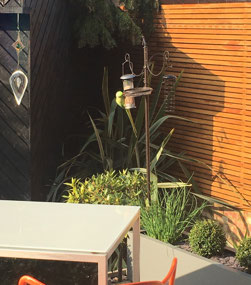
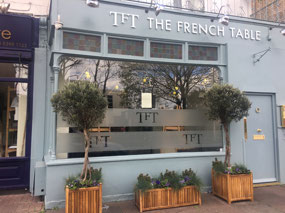



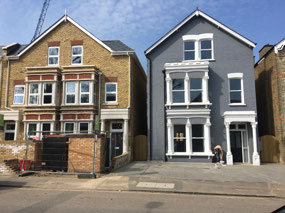
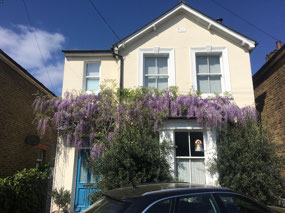

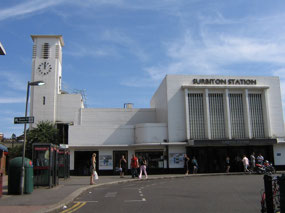
2025-05-23